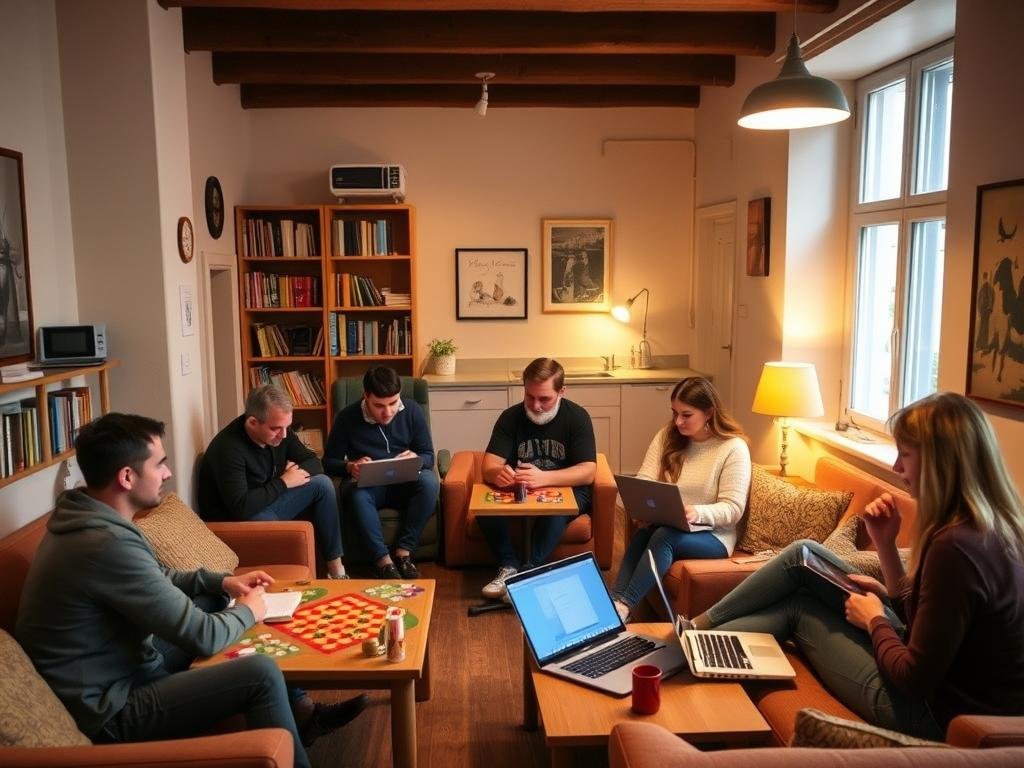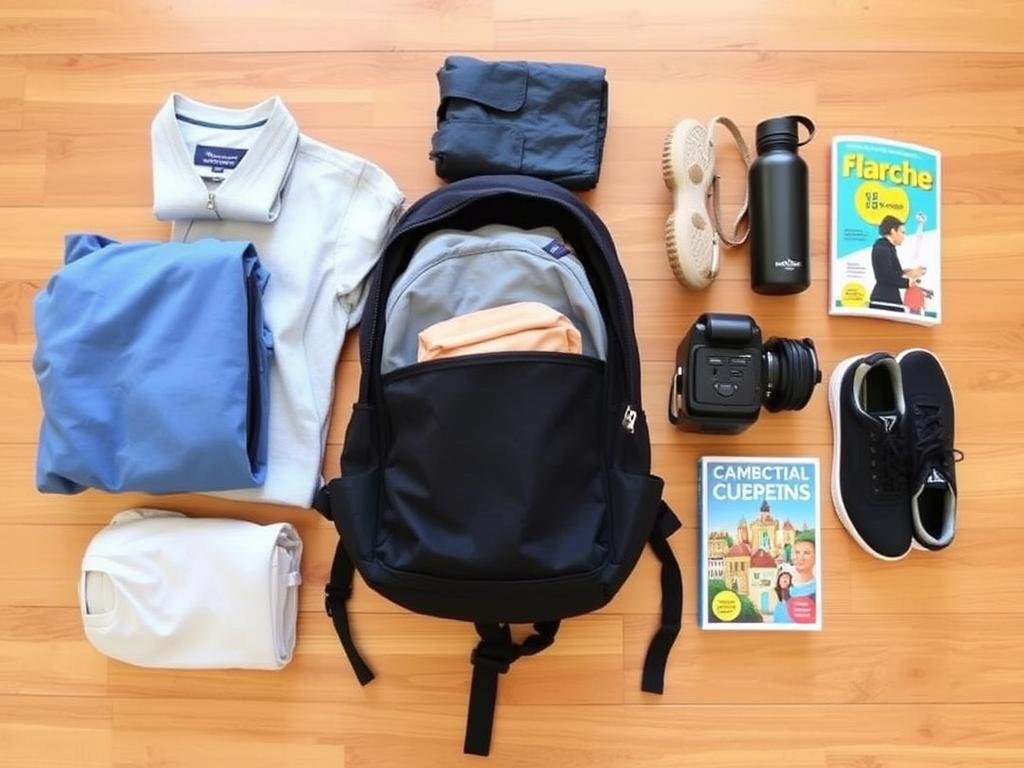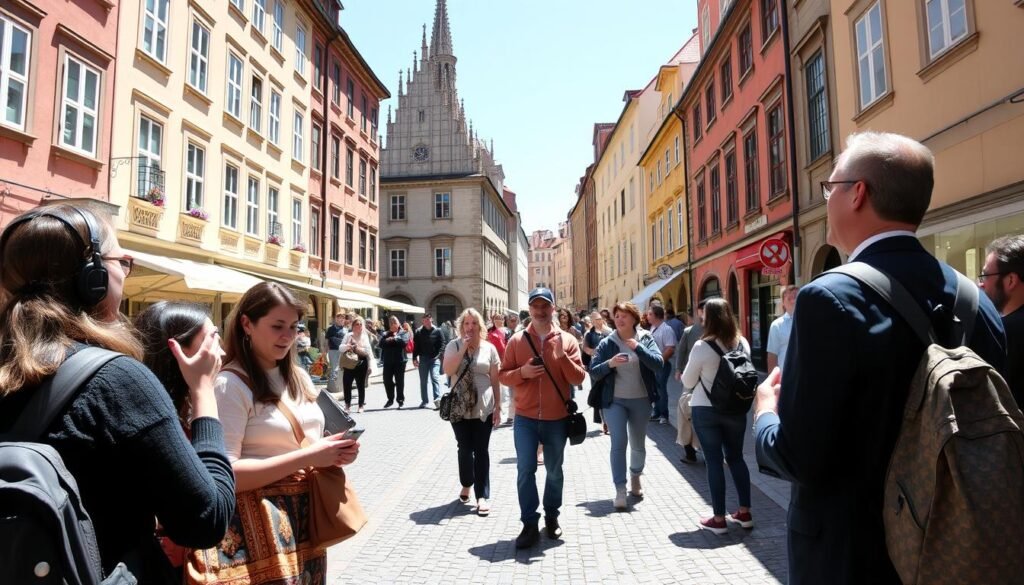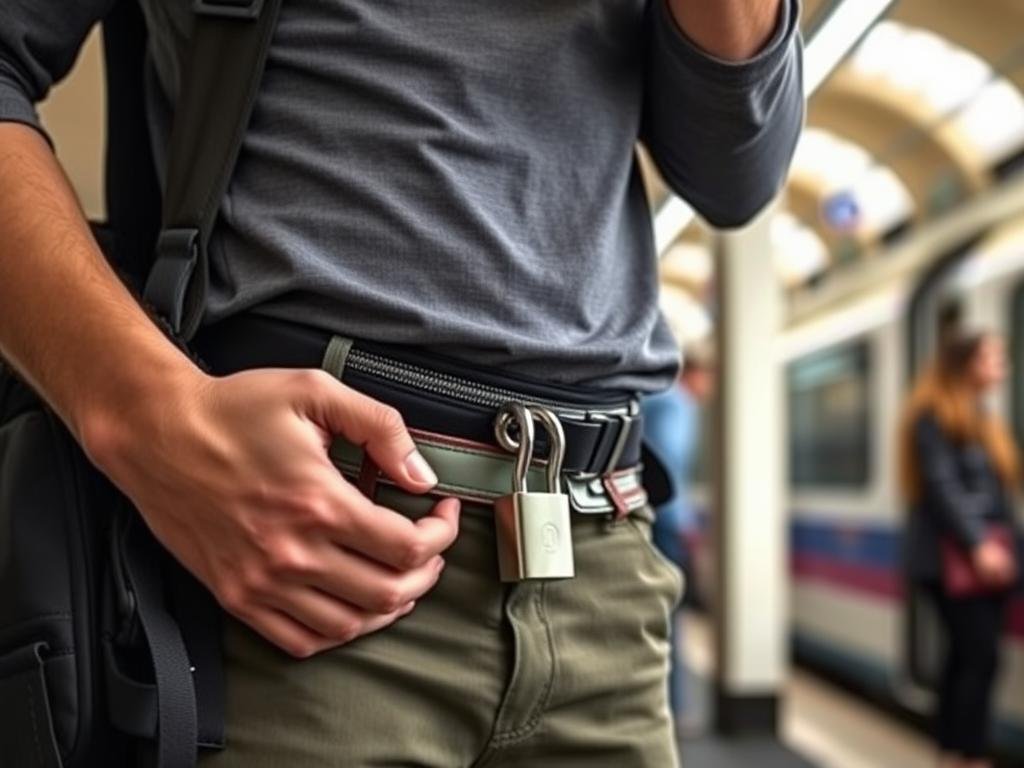Europe’s enchanting cities, diverse cultures, and rich history make it a dream destination for many travelers. But the continent’s reputation for being expensive often deters budget-conscious adventurers. The good news? With smart planning and insider knowledge, you can experience the magic of Europe in 2025 without emptying your bank account.
Whether you’re dreaming of wandering through ancient Roman ruins, savoring authentic pasta in Italy, or exploring the fairytale castles of Eastern Europe, this comprehensive guide will show you exactly how to travel Europe on a budget in 2025. We’ve gathered the latest money-saving strategies, highlighted the most affordable countries, and compiled expert tips to help you create an unforgettable European adventure that won’t break the bank.
Table of Contents
- Top Budget Tips for 2025
- Cheapest European Countries to Visit in 2025
- Budget Transportation Hacks
- Affordable Accommodation Options
- Essential Packing Guide for Budget Travelers
- Free and Low-Cost Activities in Europe
- How to Save Money on Food in Europe
- Safety Tips for Budget Travel
- Frequently Asked Questions
Top Budget Tips for Europe Travel in 2025
Planning ahead is essential for budget travel in Europe
The key to affordable European travel lies in strategic planning and knowing where to cut costs without sacrificing experiences. Here are the most effective ways to travel Europe on a budget in 2025:
Travel During Off-Season or Shoulder Season
One of the most impactful ways to save money is by avoiding peak tourist season (June-August). Consider visiting in the shoulder seasons (April-May or September-October) when you’ll enjoy:
- Accommodation prices up to 40% lower than summer rates
- Fewer crowds at major attractions and more authentic local experiences
- Pleasant weather that’s still suitable for sightseeing
- More availability for budget accommodations and transportation
For the absolute lowest prices, winter travel (November-March, excluding Christmas and New Year’s) offers the best deals, though some attractions may have limited hours.
Set Up Price Alerts for Flights
Flight costs can make or break your budget. Use tools like Google Flights, Skyscanner, or Hopper to set price alerts for your desired routes. Being flexible with your travel dates can save you hundreds of dollars. For 2025, aim to book international flights to Europe 4-6 months in advance for the best rates.
Consider Alternative Airports
Flying into major hubs like London, Paris, or Amsterdam is convenient but often more expensive. Research nearby secondary airports served by budget airlines. For example, flying into Bergamo instead of Milan, Charleroi instead of Brussels, or Beauvais instead of Paris can significantly reduce costs.
Get a Local SIM Card or eSIM
Avoid excessive roaming charges by purchasing a local SIM card upon arrival or setting up an eSIM before departure. Many European providers offer tourist packages with ample data for around €10-20, which is much cheaper than international roaming fees.
Take Advantage of Free Museum Days
Many European museums offer free admission on specific days of the month. For example, in Paris, national museums are free on the first Sunday of each month. Research these opportunities in advance and plan your itinerary accordingly to save on entrance fees.
Cheapest European Countries to Visit in 2025
While Western European destinations like France and Switzerland can quickly drain your budget, Eastern and Southern Europe offer incredible value. Here are the most affordable European countries to visit in 2025:
| Country | Daily Budget (USD) | Accommodation | Meal Costs | Highlights |
| Bulgaria | $30-45 | $10-25 | $5-15 | Black Sea beaches, Rila Monastery, Sofia’s history |
| Albania | $25-40 | $10-25 | $5-12 | Pristine beaches, mountain villages, ancient ruins |
| Romania | $35-50 | $15-30 | $7-15 | Transylvania, medieval towns, Carpathian Mountains |
| Hungary | $40-60 | $15-35 | $8-20 | Budapest thermal baths, Lake Balaton, ruin bars |
| Poland | $40-65 | $15-35 | $8-20 | Krakow’s Old Town, Warsaw, Tatra Mountains |
| Portugal | $50-80 | $20-45 | $10-25 | Lisbon, Porto, Algarve beaches, wine regions |
| Greece (mainland) | $50-80 | $20-45 | $10-25 | Ancient ruins, beautiful beaches, mountain villages |

Albania’s stunning coastline offers incredible value for budget travelers in 2025
Eastern Europe: The Budget Traveler’s Paradise
Countries like Bulgaria, Romania, and Albania offer exceptional value with daily expenses often 50-70% lower than in Western Europe. You’ll find hostels for under $15 per night, meals for $5-10, and beer for as little as $1-2. These destinations also offer rich history, stunning landscapes, and fewer tourists.
Budget-Friendly Western European Options
If you’re set on visiting Western Europe, Portugal and Greece (particularly the mainland) remain the most affordable options. While not as cheap as Eastern Europe, they offer better value than neighboring countries while still providing classic European experiences.
Budget Transportation Hacks for Europe 2025

Smart transportation choices can significantly reduce your European travel budget
Budget Airlines: The Good, The Bad, and The Fine Print
Europe’s extensive network of budget airlines like Ryanair, EasyJet, and Wizz Air can offer incredibly cheap flights, sometimes for as little as €10-30. However, these deals come with caveats:
- Strict baggage allowances with hefty fees for oversized or overweight items
- Secondary airports that may be far from city centers
- Additional charges for seat selection, priority boarding, and even printing boarding passes
To maximize savings, travel with only a small backpack that fits under the seat, check in online, and factor in the cost of airport transfers when comparing prices.
Rail Travel: Passes vs. Individual Tickets
Train travel in Europe is comfortable and scenic, but not always budget-friendly. Consider these options:
- Eurail Pass: If you’re planning extensive train travel across multiple countries, a Eurail Pass might save money. The 2025 passes start at around €185 for a 3-day pass within one country.
- Advance Booking: For specific routes, booking individual tickets 2-3 months in advance often yields better savings than rail passes.
- Regional Trains: Slower regional trains are significantly cheaper than high-speed options and offer more scenic views.
Bus Travel: The Budget Champion
For the most economical option, look to Europe’s extensive bus networks. Companies like FlixBus, Eurolines, and RegioJet offer comfortable coaches with Wi-Fi at a fraction of train costs. A journey from Prague to Vienna might cost €15-25 by bus compared to €40-60 by train.
Ridesharing and Car Rentals
For groups or when exploring rural areas, consider these options:
- BlaBlaCar: This popular ridesharing platform connects drivers with empty seats to passengers heading the same way, often at prices comparable to buses.
- Car Rentals: In less-connected regions like the Balkans or rural Portugal, splitting a rental car between 3-4 travelers can be economical. Look for local agencies rather than international chains for better rates.
City Transportation Passes
Most major European cities offer transportation passes that include unlimited public transit for 24, 48, or 72 hours. These typically pay for themselves with just 3-4 rides per day and eliminate the hassle of purchasing individual tickets.
Affordable Accommodation Options in Europe

Hostels offer more than just cheap beds—they’re social hubs for budget travelers
Hostels: Not Just for Backpackers
Modern European hostels have evolved far beyond the bare-bones dormitories of the past. In 2025, expect to find:
- Private rooms with ensuite bathrooms for couples and families
- Female-only dorms for solo women travelers
- Pod-style beds with privacy curtains, reading lights, and charging outlets
- Stylish common areas with free Wi-Fi, kitchens, and social activities
Prices range from €15-25 per night for dorm beds in Eastern Europe to €25-40 in Western European cities. Book directly through hostel websites to avoid booking site fees.
Budget Hotels and Guesthouses
Small, family-run hotels and guesthouses often offer better value than chain hotels, especially in Southern and Eastern Europe. Look for properties slightly outside the tourist center but near public transportation for the best balance of price and convenience.
Apartment Rentals for Longer Stays
For stays of a week or longer, apartment rentals through Airbnb or Booking.com can be economical, especially when you factor in the ability to prepare some of your own meals. Many hosts offer weekly discounts of 10-20% and monthly discounts of 25-40%.
Free and Nearly-Free Accommodation
For the ultimate budget experience, consider these options:
- Couchsurfing: Stay with locals for free while experiencing authentic cultural exchange. Create a detailed profile and reach out to hosts well in advance.
- House-sitting: Platforms like TrustedHousesitters connect travelers with homeowners who need someone to watch their house and pets while they’re away.
- Work Exchange: Websites like Workaway and WWOOF offer accommodation and meals in exchange for a few hours of work daily, from farm help to hostel reception.
Camping and Glamping
Throughout Europe, especially in rural areas and along coastlines, camping offers an affordable option during the warmer months. Many campgrounds provide amenities like hot showers, kitchens, and even swimming pools for €10-20 per night.
Essential Packing Guide for Budget Travelers

Smart packing can save you money and hassle during your European adventure
Pack Light to Save Money
One of the most practical ways to travel Europe on a budget in 2025 is to pack efficiently. Traveling light helps you:
- Avoid checked baggage fees on budget airlines (often €25-40 per flight)
- Use public transportation more easily instead of expensive taxis
- Stay mobile and flexible with your itinerary
Multi-Purpose Clothing Essentials
Focus on versatile items that can be layered and mixed-and-matched:
- Quick-dry, wrinkle-resistant fabrics that can be washed in a sink and dry overnight
- Neutral colors that can be dressed up or down
- A lightweight, packable rain jacket instead of an umbrella
- Comfortable walking shoes that look decent enough for restaurants
Money-Saving Items to Pack
These items may take up a little space but can save you significant money:
- Reusable water bottle: Tap water is safe to drink in most European countries, saving you €2-3 per day on bottled water
- Basic first-aid supplies: Avoid paying tourist prices for simple medications
- Universal power adapter: Much cheaper to buy at home than at airport shops
- Packable shopping bag: Many European countries charge for plastic bags
- Padlock: Essential for hostel lockers and securing your backpack
Digital Essentials
These tech items will help you navigate and save money:
- Smartphone with offline maps: Download Google Maps or Maps.me areas before traveling
- E-reader: Save weight compared to physical books
- Portable charger: Avoid getting stranded with a dead phone
Pro Tip: Leave space in your bag for souvenirs or items you might need to purchase. If your bag is completely full when you leave home, you’ll likely need to buy another bag during your trip.
Free and Low-Cost Activities in Europe

Free walking tours are available in most European cities and provide excellent cultural insights
Free Walking Tours: The Budget Traveler’s Best Friend
Available in virtually every European city, free walking tours operate on a tip-based model and offer excellent value. These 2-3 hour tours provide:
- Comprehensive introduction to the city’s history and layout
- Local insights and recommendations from knowledgeable guides
- Opportunity to meet other travelers
While tipping is expected (€10-15 per person is standard), this remains one of the best values in European tourism. Companies like Sandemans New Europe and GuruWalk offer tours in multiple languages.
Free Museum Days and Cultural Sites
Many European museums and cultural sites offer free admission on specific days:
- Paris: First Sunday of each month at the Louvre, Musée d’Orsay, and others
- Rome: First Sunday of the month at the Colosseum and Roman Forum
- Barcelona: First Sunday of the month at Picasso Museum
- London: British Museum, National Gallery, and Tate Modern are always free
Research these opportunities in advance and plan your itinerary accordingly to save significantly on entrance fees.
Self-Guided Walking Itineraries
Create your own walking tours using free resources like:
- Rick Steves’ free audio walking tours (downloadable from his website)
- GPSmyCity app for self-guided city walks
- Free walking tour maps available from tourist information centers
Parks, Viewpoints, and Public Spaces
Some of Europe’s most memorable experiences cost nothing:
- Picnicking in Paris’s Luxembourg Gardens
- Hiking to panoramic viewpoints in Lisbon or Budapest
- Exploring Berlin’s Tiergarten or London’s Hyde Park
- People-watching in Rome’s Piazza Navona or Barcelona’s Park Güell (outer areas)
Free Festivals and Events
Throughout the year, European cities host numerous free cultural events. Research local event calendars for:
- Summer music festivals and outdoor concerts
- Cultural celebrations and street festivals
- Christmas markets in December
- Open-air cinema screenings in summer months
How to Save Money on Food in Europe

Picnicking with local foods is both economical and a quintessential European experience
Self-Catering: Your Budget’s Best Friend
One of the most effective ways to travel Europe on a budget in 2025 is to prepare some of your own meals:
- Stay in accommodations with kitchen access when possible
- Shop at local supermarkets and farmers’ markets for fresh, affordable ingredients
- Prepare simple breakfasts and at least one other meal daily
Even preparing just breakfast and one other meal daily can cut your food budget by 50-60%.
Lunch Specials and Prix Fixe Menus
When eating out, lunch is typically much more affordable than dinner. Many restaurants offer:
- “Menu del día” in Spain (3-course lunch with drink for €10-15)
- “Plat du jour” in France (daily special for €10-12)
- Business lunch specials in Eastern Europe (full meal for €5-8)
Street Food and Market Meals
For affordable, authentic local cuisine, seek out:
- Food markets like Barcelona’s La Boqueria or Budapest’s Great Market Hall
- Street food vendors for local specialties
- Bakeries for inexpensive breakfast pastries and lunch sandwiches
Drink Like a Local
Beverage costs can quickly add up. Save money by:
- Drinking tap water where safe (most of Western and Central Europe)
- Enjoying house wine instead of bottled wine in restaurants
- Looking for happy hour specials, especially in tourist areas
- Buying alcohol from supermarkets for evening drinks in your accommodation
Apps for Food Savings
Technology can help you find food deals:
- Too Good To Go: Offers discounted surplus food from restaurants and bakeries
- TheFork (LaFourchette): Provides restaurant discounts of up to 50%
- Yelp: Filter by price range to find budget-friendly options
Local Tip: In many European countries, restaurants charge extra for sitting at a table versus standing at the bar. In Italy, for example, an espresso might cost €1 at the bar but €3-4 if you sit down.
Safety Tips for Budget Travel in Europe

Smart safety practices help protect both you and your budget
Protecting Your Valuables
Budget travel doesn’t mean compromising on safety. Protect your belongings with these practices:
- Use a money belt or hidden pouch for passports, extra cash, and cards
- Keep only a day’s worth of money in your regular wallet
- Secure backpacks with small locks, especially in crowded areas
- In hostels, always use lockers for valuables (bring your own padlock)
Avoiding Common Scams
Be aware of these common tourist scams in Europe:
- Friendship bracelet scam: Someone ties a bracelet on your wrist then demands payment
- Petition scams: People asking you to sign petitions while accomplices pickpocket you
- Taxi overcharging: Always ensure meters are used or prices agreed upon beforehand
- Free “gifts”: Refuse items someone tries to hand you, as they’ll demand payment after
Digital Security
Protect your digital information while traveling:
- Use a VPN when connecting to public Wi-Fi networks
- Enable two-factor authentication on important accounts
- Back up photos and documents to cloud storage regularly
- Be cautious about using public computers for sensitive transactions
Emergency Preparedness
Be prepared for unexpected situations:
- Save emergency contacts and embassy information for each country you’ll visit
- Keep digital and physical copies of important documents (passport, insurance)
- Learn basic phrases in local languages for emergencies
- Know the European emergency number: 112
Travel Insurance: A Budget Essential
While it may seem like an extra expense, travel insurance is crucial for budget travelers. A medical emergency or theft could devastate your finances without proper coverage. Look for policies that include:
- Medical coverage (including COVID-related illness)
- Trip cancellation/interruption
- Baggage loss/theft
- Emergency evacuation
Companies like World Nomads and SafetyWing offer affordable policies designed for budget travelers.
Frequently Asked Questions About Budget Travel in Europe
Is €30/day realistic for traveling in Europe in 2025?
Yes, but with limitations. A €30/day budget is realistic in Eastern European countries like Bulgaria, Albania, and parts of Romania. This would cover a hostel dorm bed, self-prepared meals and street food, public transportation, and some free activities. In Western Europe, you’d need to rely heavily on Couchsurfing, work exchanges, or camping to stay within this budget. For most travelers, a more realistic minimum budget is €50-60/day in Eastern Europe and €80-100/day in Western Europe.
What are the best apps for budget travel in Europe in 2025?
Essential apps for budget European travel include:
- Rome2Rio: Compares transportation options between destinations
- Hostelworld: Finds and books budget accommodations
- Google Maps: Download offline maps to navigate without data
- Revolut or Wise: For fee-free currency exchange and withdrawals
- Too Good To Go: Finds discounted surplus food from restaurants
- BlaBlaCar: Ridesharing platform for intercity travel
- Omio: Compares and books trains, buses, and flights
How can I find last-minute deals for European travel?
For spontaneous travelers, these strategies can uncover last-minute savings:
- Use apps like HotelTonight for same-day accommodation deals
- Check Skyscanner’s “Everywhere” feature for cheap flights departing soon
- Join Facebook groups for specific destinations where locals and travelers share deals
- Look for repositioning tours and cruises that offer significant discounts
- Visit tourist offices upon arrival for last-minute activity discounts
However, for the absolute best deals, especially in peak season, booking 2-3 months in advance is still recommended.
Is it cheaper to use cash or cards in Europe?
This varies by country. In Western Europe, cards are widely accepted with minimal additional fees. In Eastern Europe, cash is still king in many places and often preferred by small businesses. For the best rates:
- Use a credit card with no foreign transaction fees for larger purchases
- Withdraw local currency from ATMs using a debit card that reimburses ATM fees
- Always choose to be charged in the local currency when using cards (decline dynamic currency conversion)
- Avoid currency exchange booths, especially at airports and tourist areas
How much should I budget for a 2-week trip to Europe in 2025?
Budget requirements vary significantly based on your travel style and destinations:
- Shoestring budget (Eastern Europe focus): €700-1,000 (excluding flights)
- Moderate budget (mix of regions): €1,200-1,800 (excluding flights)
- Comfortable budget (Western Europe): €2,000-3,000 (excluding flights)
These estimates include accommodation, food, local transportation, and some activities. Add €400-800 for flights from North America or €200-400 from within Europe.
Ready to Explore Europe on a Budget?
Start planning your affordable European adventure today. Find the best deals on flights, accommodations, and experiences to make your 2025 Europe trip both memorable and budget-friendly.
Final Thoughts on Budget Travel in Europe

The memories you’ll make traveling Europe are priceless, regardless of your budget
Traveling Europe on a budget in 2025 doesn’t mean missing out on incredible experiences. In fact, budget travel often leads to more authentic connections with local cultures and fellow travelers. By implementing the strategies in this guide—from choosing affordable destinations to finding free activities and eating like a local—you can create an unforgettable European adventure without breaking the bank.
Remember that flexibility is your greatest asset when traveling on a budget. Being open to alternative destinations, accommodation types, and travel dates will consistently yield the best value. Start planning early, research thoroughly, and prioritize the experiences that matter most to you.
Whether you’re dreaming of wandering through ancient ruins in Greece, sampling street food in Poland, or watching the sunset over Portugal’s coastline, Europe’s diverse treasures await—no matter your budget. The continent’s rich history, stunning landscapes, and vibrant cultures are accessible to all travelers willing to plan strategically and travel smartly.
Safe travels and happy budget adventuring across Europe in 2025!

